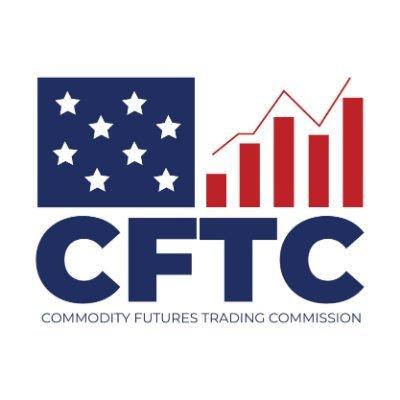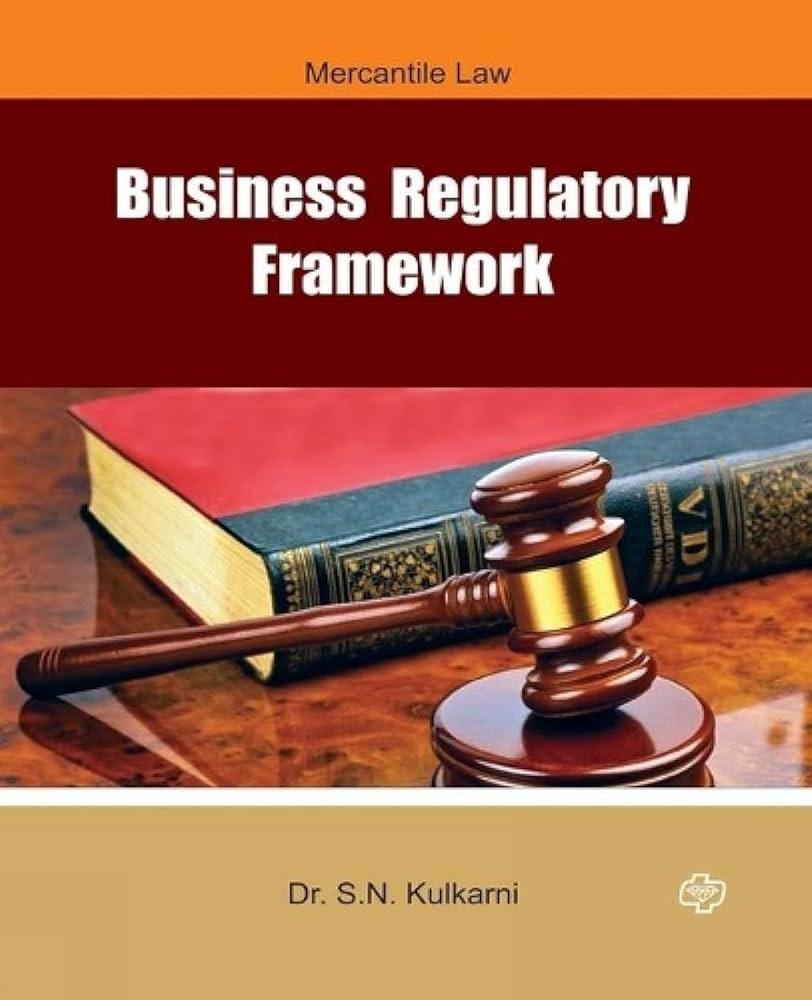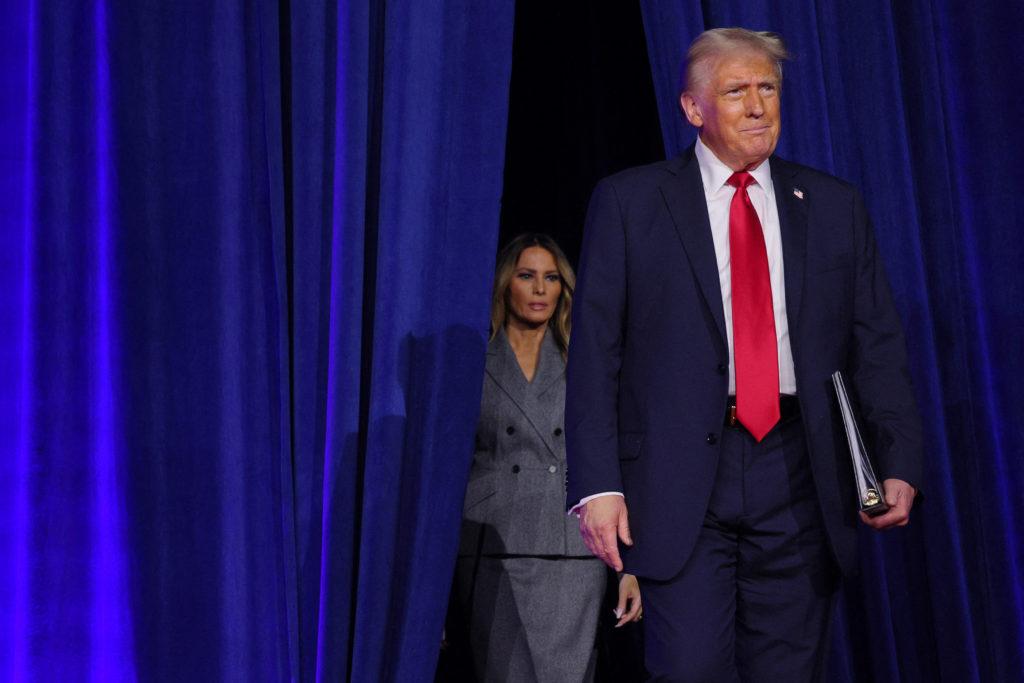In a landscape defined by rapid technological advancement and shifting regulatory frameworks, the Trump administration has set its sights on a bold new approach to cryptocurrency oversight. In a move that could reshape the future of digital currency governance, officials have proposed transferring regulatory authority from the Securities and Exchange Commission (SEC) to the Commodity Futures Trading Commission (CFTC). This strategic shift aims to align regulatory practices with the burgeoning crypto market’s unique characteristics, potentially paving the way for a more cohesive and responsive oversight framework. As stakeholders from Wall Street to Main Street weigh the implications of this proposal, the conversation surrounding the regulation of cryptocurrencies has never been more critical. What does this transition mean for investors, innovators, and regulators alike? This article delves into the motivations behind this proposed change, its potential impacts, and the intricate dance between support and criticism that accompanies such a significant shift in the governance of an ever-evolving financial landscape.
Table of Contents
- Exploring Regulatory Shifts in Crypto: The Role of the CFTC
- Assessing the Impact on Market Stability and Investor Protection
- Opportunities and Challenges for Blockchain Innovation
- Strategic Recommendations for a Balanced Regulatory Framework
- Q&A
- Key Takeaways

Exploring Regulatory Shifts in Crypto: The Role of the CFTC
The shifting landscape of regulatory oversight in the cryptocurrency space is witnessing significant transformation, with the proposal to empower the Commodity Futures Trading Commission (CFTC) at the forefront. This strategic shift aims to establish a more defined framework for digital assets, emphasizing the CFTC’s expertise in managing futures and options markets. Advocates of this transition argue that the CFTC’s regulatory experience in handling complex financial instruments positions the agency as better equipped to navigate the intricacies of cryptocurrency, which operates in a volatile and ever-changing environment. Some key advantages of this proposed oversight shift include:
- Enhanced Consumer Protection: By leveraging the CFTC’s enforcement capabilities, consumers could gain increased safety against fraudulent activities.
- Market Integrity: A shift in oversight may contribute to improved transparency in crypto trading, fostering greater confidence among investors.
- Clearer Regulations: With the CFTC at the helm, the crypto industry could benefit from clearer rules, leading to more predictable market behavior.
However, the transition is not without its challenges. Many industry stakeholders express concerns regarding the potential for overly stringent regulations that could stifle innovation and growth within the crypto sector. Balancing the need for regulatory protection with the desire to nurture technological advancements will be a crucial task for the CFTC. Key considerations in this conversation may include:
| Potential Challenges | Implications |
|---|---|
| Overregulation | May inhibit startups and entrepreneurial projects in the crypto space. |
| Regulatory Arbitrage | Could push crypto businesses to offshore locations with looser regulations. |

Assessing the Impact on Market Stability and Investor Protection
The proposal to transfer cryptocurrency oversight from the SEC to the CFTC has ignited discussions regarding its potential effects on market stability and the safeguarding of investors. Proponents argue that the CFTC, with its experience in futures and commodity markets, is better equipped to regulate the rapidly evolving crypto landscape. This transition could lead to enhanced regulatory clarity, which is essential for fostering confidence among institutional investors and traditional finance participants. By establishing more robust frameworks, the new oversight could mitigate risks associated with price volatility and market manipulation
.
However, there are significant concerns about the adequacy of the CFTC’s current regulations in addressing the complexities of digital assets. The unique characteristics of cryptocurrencies may present challenges that could leave investors vulnerable. Key issues include:
- Liquidity Risk: Fluctuations in trading volumes can affect market behavior.
- Fraud Prevention: New regulatory structures must be effective in combating scams.
- Limitations in Technology: The existing framework may not account for advancements in blockchain technology.
As the regulatory landscape adapts, it will be crucial to monitor these implications closely. Ensuring that protective measures are comprehensive enough to secure the interests of investors while simultaneously promoting innovation in the market will remain an ongoing challenge.

Opportunities and Challenges for Blockchain Innovation
The potential for blockchain innovation is vast, particularly in light of the recent proposal to transfer oversight of cryptocurrencies from the SEC to the CFTC. This move could lead to a more favorable regulatory environment, fostering growth and enhancing the transparency of the digital currency market. The shift might provide opportunities such as:
- Innovation Acceleration: With clearer regulation, startups and established companies can invest confidently in blockchain technology.
- Market Stability: CFTC’s approach may introduce stability, making the crypto market more attractive to institutional investors.
- Global Competitiveness: Enhanced regulatory clarity could position the U.S. as a leader in the blockchain space, attracting international talent and investment.
However, challenges remain. The fragmentation of regulatory approaches can lead to confusion and increase compliance costs for businesses. Additionally, there are concerns about consumer protection and the potential for market manipulation. Key challenges include:
| Challenge | Description |
|---|---|
| Regulatory Uncertainty | Inconsistent rules across states may hamper growth and innovation. |
| Consumer Protection | Ensuring safe practices amidst rapid innovation poses significant risks. |
| Market Integrity | Preventing fraud and manipulation is vital for maintaining trust. |

Strategic Recommendations for a Balanced Regulatory Framework
To foster a robust and adaptive regulatory environment for the evolving cryptocurrency space, the following strategic recommendations could be considered:
- Establish Clear Jurisdictional Boundaries: Defining the roles of the CFTC and other regulatory bodies like the SEC is crucial. This clarity will help prevent regulatory overlap and ensure that crypto assets are supervised by the most appropriate authorities.
- Implement Comprehensive Reporting Standards: Require all crypto exchanges and trading platforms to adhere to standardized reporting protocols. This can enhance market transparency and trust among investors.
- Encourage Self-Regulatory Organizations (SROs): Promoting the formation of industry-led bodies can facilitate dialog between regulators and market participants, allowing for tailored oversight that meets the unique challenges of the crypto landscape.
- Focus on Consumer Protection: Ensure that regulations prioritize investor education and protection, offering clear guidelines to shield consumers from fraud and market manipulation.
In addition to these recommendations, it may be beneficial to implement a structured framework that can adapt over time, accounting for technological advancements and market shifts. A proposed framework could look like this:
| Aspect | Proposed Action | Expected Outcome |
|---|---|---|
| Data Privacy | Enhance KYC/AML requirements | Improved compliance and reduced fraud |
| Market Integrity | Implement trade surveillance | Increased market confidence and fairness |
| Innovation Support | Sandbox initiatives for startups | Encouragement of fintech development |
Q&A
Q&A: Trump Administration Proposes Shifting Crypto Oversight to CFTC
Q: What is the main proposal from the Trump administration regarding cryptocurrency oversight?
A: The Trump administration is proposing to shift the primary oversight of cryptocurrency markets from the Securities and Exchange Commission (SEC) to the Commodity Futures Trading Commission (CFTC). This shift aims to create a more streamlined regulatory framework that could foster innovation while enhancing investor protection.
Q: Why is the administration considering this shift?
A: The decision stems from the administration’s belief that the CFTC is better equipped to handle the unique challenges posed by cryptocurrencies. The CFTC has experience regulating derivatives and futures, which are closely related to many crypto products. By centralizing oversight under the CFTC, officials hope to promote a more orderly and transparent market for cryptocurrencies.
Q: What implications could this change have for the cryptocurrency industry?
A: The shift could lead to clearer definitions and regulations around crypto assets, potentially reducing ambiguity for market participants. This clarity may attract institutional investors who have hesitated to enter the space due to regulatory uncertainty. However, it could also impose stricter regulations on certain cryptocurrencies, potentially affecting their market dynamics.
Q: How might this affect investors and consumers?
A: For investors, moving oversight to the CFTC could mean enhanced protection against fraud and manipulation, as the commission has a track record of enforcement in futures markets. However, investors might also face new compliance requirements, which could alter how they engage with and trade cryptocurrencies.
Q: What are the arguments for and against this regulatory shift?
A: Advocates argue that the CFTC’s experience with derivatives positions it well to manage the complexities of crypto markets, potentially leading to a more robust regulatory environment. Critics, however, contend that treating cryptocurrencies like commodities might diminish essential protections that securities regulations afford investors, potentially increasing their exposure to risk.
Q: What are the potential next steps following this proposal?
A: If the proposal gains traction, it would likely lead to discussions within Congress and regulatory agencies. Legislators may seek to draft and pass new laws, while the CFTC and SEC could develop joint guidelines to oversee the transition. Public input from stakeholders in the crypto industry will also play a crucial role in shaping any final decisions.
Q: How might this proposal impact the global landscape of cryptocurrency regulation?
A: If the United States moves forward with transferring crypto oversight to the CFTC, it could inspire similar regulatory changes in other countries, catalyzing a global shift in how cryptocurrencies are treated. This could either lead to greater harmonization of regulations across borders or, alternatively, create a patchwork of varying approaches, depending on each country’s regulatory philosophy.
Q: What should crypto enthusiasts and investors do in response to this proposed change?
A: Investors and enthusiasts are encouraged to stay informed about developments regarding the proposal. Engaging with community discussions, following updates from regulatory bodies, and possibly consulting legal expertise will be essential for navigating the evolving landscape. Open dialog with policymakers can also help ensure that the concerns of the crypto community are addressed in future regulations.
—
This proposal signals an important moment in the ongoing evolution of cryptocurrency regulation, one that will likely further define the industry’s future in the United States and beyond.
Key Takeaways
In a landscape where the digital currency frontier is ever-evolving, the Trump administration’s proposal to transition cryptocurrency oversight from the SEC to the CFTC represents a significant pivot in regulatory strategy. This bold move opens the door to new possibilities for the burgeoning crypto market, promising a more harmonized approach that could foster innovation while ensuring investor protection. As the dust settles on this proposal, stakeholders in the crypto community—including investors, developers, and regulators—will undoubtedly keep a close eye on the implications of this shift. Each decision made in the corridors of power can ripple through the rapidly shifting sands of the digital economy, shaping the future of finance. As we await the outcomes of this regulatory realignment, one thing remains clear: the dialog surrounding cryptocurrency oversight is only just beginning.

ivermectin 12mg for humans for sale – atacand online order tegretol 400mg sale
isotretinoin 40mg generic – linezolid 600 mg tablet buy generic zyvox
amoxil pills – buy combivent 100 mcg buy generic combivent over the counter
zithromax 500mg for sale – tindamax 300mg generic order bystolic 5mg generic
order omnacortil 20mg online cheap – omnacortil 40mg tablet prometrium for sale
furosemide usa – lasix 100mg price buy betnovate 20 gm sale
augmentin online buy – duloxetine 40mg pill cost cymbalta 40mg
monodox generic – ventolin 2mg cost glipizide cheap
augmentin cheap – order nizoral 200mg online cheap order cymbalta 40mg pill
rybelsus online – buy vardenafil 20mg buy periactin pill
zanaflex tablet – order hydroxychloroquine 400mg online order microzide without prescription
cialis 5mg tablet – order cialis 20mg generic buy sildenafil 50mg
viagra mail order usa – order generic cialis 10mg buy tadalafil 10mg for sale
buy lipitor 40mg without prescription – atorvastatin 80mg usa prinivil price
order cenforce 100mg online – cenforce drug purchase glucophage for sale
how to buy lipitor – norvasc 5mg pills buy zestril 2.5mg generic
buy lipitor 40mg generic – amlodipine sale generic lisinopril
prilosec 10mg over the counter – lopressor pills tenormin 100mg cheap
buy methylprednisolone 16 mg online – buy triamcinolone cheap buy triamcinolone pills for sale
order clarinex 5mg online – priligy price buy dapoxetine for sale
misoprostol 200mcg over the counter – xenical canada order diltiazem for sale
cost acyclovir – rosuvastatin 20mg for sale order rosuvastatin generic
domperidone 10mg pills – domperidone buy online flexeril pills
buy generic domperidone for sale – sumycin canada cyclobenzaprine 15mg generic
inderal online order – inderal 10mg pill order methotrexate 10mg online
warfarin us – buy warfarin for sale order cozaar 50mg for sale
order levaquin 500mg online cheap – ranitidine ca zantac 300mg sale
order esomeprazole 40mg capsules – generic imitrex buy generic imitrex
buy cheap generic meloxicam – cheap tamsulosin tamsulosin for sale
zofran over the counter – buy zofran tablets zocor over the counter
order valacyclovir 1000mg pills – buy valtrex tablets diflucan drug
provigil usa buy modafinil 200mg sale order generic provigil 200mg buy provigil generic buy generic provigil over the counter order modafinil 200mg online cheap modafinil 100mg ca
The vividness in this ruined is exceptional.
This is the type of advise I find helpful.
buy azithromycin cheap – ciplox 500mg generic purchase flagyl for sale
order semaglutide 14 mg sale – order generic rybelsus 14mg cyproheptadine cheap
domperidone price – domperidone pills buy flexeril online
buy propranolol online – buy inderal 20mg generic methotrexate 10mg generic
buy generic amoxicillin – how to get diovan without a prescription cheap ipratropium
zithromax 250mg for sale – order tindamax 300mg pill bystolic 20mg tablet
clavulanate ca – https://atbioinfo.com/ buy ampicillin no prescription
buy cheap nexium – anexa mate order esomeprazole for sale
buy cheap coumadin – https://coumamide.com/ order losartan 50mg generic
buy meloxicam for sale – moboxsin buy mobic 7.5mg sale
order prednisone 5mg online cheap – https://apreplson.com/ deltasone 5mg pills
buy ed pills – fastedtotake.com ed pills no prescription
cheap generic amoxicillin – how to get amoxicillin without a prescription purchase amoxicillin for sale
buy diflucan sale – flucoan cheap forcan
cenforce 50mg drug – https://cenforcers.com/ cenforce online order
buy tadalafil online canada – https://ciltadgn.com/ cialis generic overnite
does medicare cover cialis for bph – site cialis samples for physicians
This is the kind of serenity I have reading. https://gnolvade.com/
More posts like this would create the online time more useful. https://buyfastonl.com/
The thoroughness in this draft is noteworthy. https://ursxdol.com/get-metformin-pills/
I’ll certainly carry back to review more. https://prohnrg.com/product/loratadine-10-mg-tablets/
This is the make of advise I unearth helpful. levitra belgique
More articles like this would pretence of the blogosphere richer. https://ondactone.com/simvastatin/
Facts blog you be undergoing here.. It’s hard to assign elevated quality writing like yours these days. I justifiably appreciate individuals like you! Withstand vigilance!!
https://proisotrepl.com/product/toradol/
Thanks on sharing. It’s outstrip quality. http://www.gtcm.info/home.php?mod=space&uid=1158207
dapagliflozin over the counter – https://janozin.com/ dapagliflozin 10mg for sale
orlistat sale – this orlistat 120mg sale
More articles like this would remedy the blogosphere richer. http://fulloyuntr.10tl.net/member.php?action=profile&uid=3250
В этом интересном тексте собраны обширные сведения, которые помогут вам понять различные аспекты обсуждаемой темы. Мы разбираем детали и факты, делая акцент на важности каждого элемента. Не упустите возможность расширить свои знания и взглянуть на мир по-новому!
Детальнее – https://quick-vyvod-iz-zapoya-1.ru/
You can protect yourself and your stock by being alert when buying medicine online. Some pharmaceutics websites operate legally and sell convenience, reclusion, rate savings and safeguards over the extent of purchasing medicines. buy in TerbinaPharmacy https://terbinafines.com/product/dilantin.html dilantin
Thanks for sharing. It’s top quality. combien de kms entre lasix et bugares de la roumanie
Thanks towards putting this up. It’s well done.
https://t.me/site_official_1win/400
https://t.me/s/iGaming_live/4864
https://t.me/s/iGaming_live/4866
https://t.me/s/iGaming_live/4871
https://t.me/s/be_1win/274
https://t.me/s/dragon_money_mani/39
https://t.me/s/iGaming_live/4873
http://images.google.ki/url?q=https://t.me/officials_7k/582
В мире азарта, где каждый ресурс норовит зацепить заверениями легких выигрышей, рейтинг рублевых казино
превращается как раз той ориентиром, которая направляет через ловушки рисков. Тем хайроллеров и новичков, которые пресытился от фальшивых посулов, такой помощник, чтобы ощутить реальную выплату, будто вес выигрышной монеты у ладони. Обходя пустой воды, лишь надёжные клубы, где выигрыш не просто цифра, а конкретная везение.Составлено из гугловых запросов, словно паутина, которая ловит топовые актуальные веяния по интернете. Здесь нет пространства про клише фишек, любой пункт словно карта в столе, там подвох раскрывается немедленно. Игроки понимают: в России манера письма и подтекстом, там юмор притворяется под намёк, позволяет миновать ловушек.На https://www.provenexpert.com/don8play этот топ находится словно готовая карта, готовый к раздаче. Зайди, когда хочешь увидеть пульс реальной азарта, обходя иллюзий да провалов. Игрокам кто знает вес выигрыша, он как держать карты на руках, минуя глядеть по монитор.
В мире ставок, где всякий ресурс пытается заманить гарантиями простых джекпотов, казино онлайн рейтинг
превращается именно той путеводителем, которая ведет мимо дебри обмана. Для хайроллеров плюс новичков, кто устал из-за фальшивых обещаний, это помощник, дабы ощутить настоящую отдачу, будто вес золотой фишки в руке. Без пустой ерунды, лишь реальные площадки, где отдача не только цифра, а конкретная удача.Собрано из гугловых поисков, как ловушка, что ловит топовые свежие тенденции на рунете. В нём отсутствует пространства про стандартных приёмов, всякий пункт будто ход на покере, в котором подвох проявляется немедленно. Профи видят: по стране стиль письма и иронией, там сарказм маскируется под рекомендацию, даёт обойти рисков.В https://www.wattpad.com/user/Gamer_iGaming такой топ ждёт словно готовая колода, готовый к старту. Загляни, если нужно увидеть ритм подлинной игры, без иллюзий и провалов. Игрокам тех знает ощущение удачи, это как иметь карты на руках, а не смотреть на дисплей.
real casino slots free play no deposit
real cash casinos online
top casino online
mgm poker download https://betmgm-play.com/ mgm app betting